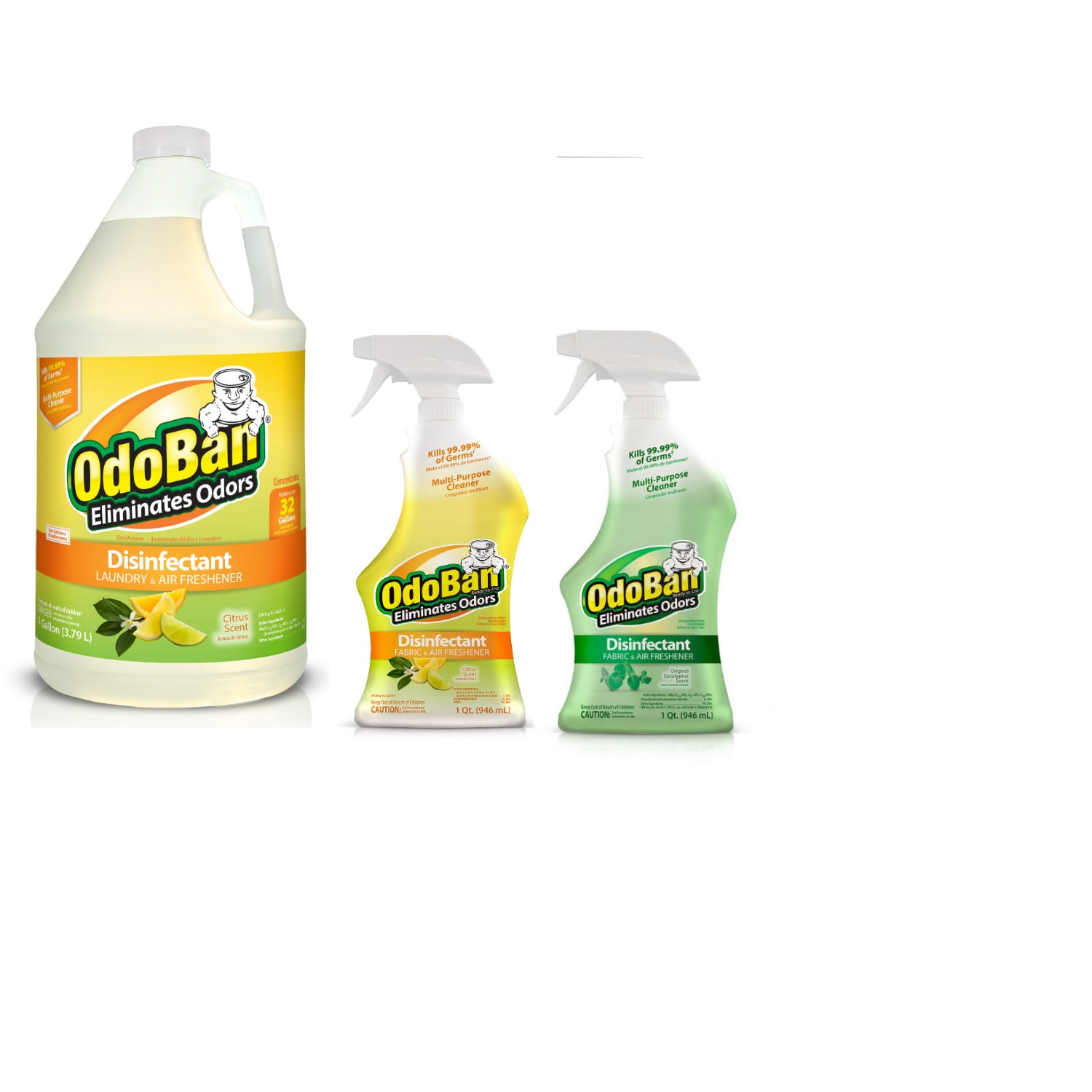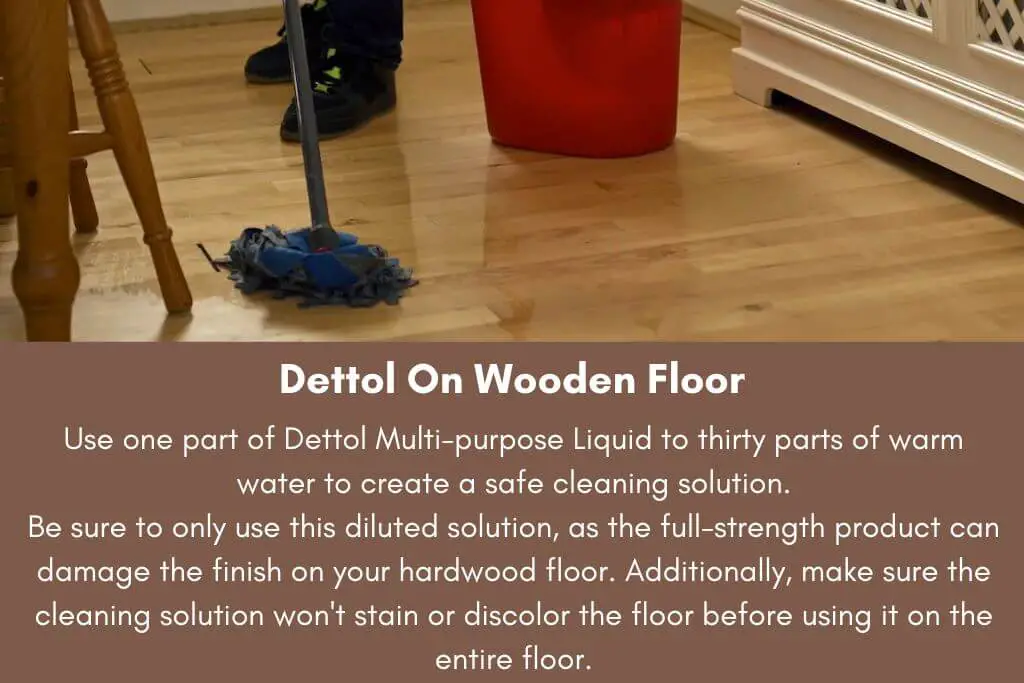Have you ever noticed a strange smell in your home, one that lingers even after a thorough cleaning? Maybe you’ve got a pet that likes to leave its mark, or perhaps you’ve experienced a spill that left behind a stubborn stain. In situations like these, you might reach for a powerful disinfectant like Odoban, known for its effectiveness in eliminating bacteria and viruses. But can you use Odoban on your hardwood floors without damaging them?

Image: www.walmart.com
This question is crucial for preserving the beauty and longevity of your hardwood floors, which are a cherished feature in many homes. They add warmth and elegance, making your space feel cozy and inviting. However, using the wrong cleaning products can lead to unwanted consequences like dulling, discoloration, and even warping. Let’s dive into the world of hardwood floor cleaning and discover whether Odoban is a safe and effective choice.
Understanding Odoban: A Potent Disinfectant
Odoban is a powerful disinfectant that has been around for decades. It’s widely used in various settings, from schools and hospitals to homes and businesses. Its popularity stems from its ability to kill a broad range of microorganisms, including bacteria, viruses, fungi, and mold, making it a valuable tool for sanitation.
However, Odoban’s strength lies in its chemical composition, which contains powerful active ingredients designed to eliminate harmful pathogens. This very property can also pose a threat to certain surfaces, especially those sensitive to chemicals. This is where the question of using Odoban on hardwood floors becomes critical.
The Dilemma: Hardwood Floors and Cleaning Chemicals
Hardwood floors are beautiful, but they require a delicate touch when it comes to cleaning. They are often made from natural materials like oak, maple, and cherry, which have unique characteristics and sensitivities.
The finish applied to your hardwood floors plays a critical role in their durability and reaction to cleaning products. This finish can range from oil-based to water-based polyurethanes, each offering different levels of protection and sensitivity to chemicals.
Can You Use Odoban on Hardwood Floors?
The answer, unfortunately, isn’t a simple yes or no. While Odoban can effectively kill germs and prevent the spread of infections, its chemical composition can potentially damage certain hardwood floors. So, should you avoid using Odoban altogether? Not necessarily.
The key to safely using any cleaning product on your hardwood floors lies in understanding the type of finish your floors have and the concentration of the product being used.
Here’s a breakdown of the potential risks and precautions:
-
Unfinished or Unsealed Hardwood Floors: Avoid using Odoban on unfinished or unsealed hardwood floors. These floors are highly porous and susceptible to damage from chemicals. Odoban can penetrate the wood, leading to discoloration, warping, or even damage to the structure.
-
Sealed Hardwood Floors: Sealed hardwood floors have a protective layer that shields them from chemicals, making them more resistant to damage. However, it’s still crucial to exercise caution.
-
Types of Sealants: If you have sealed hardwood floors, it’s essential to understand the type of sealant used. Oil-based polyurethanes are generally more resistant to chemicals than water-based polyurethanes.
-
Dilution is Key: Odoban is typically diluted before use, with the recommended ratio varying depending on the application. Always dilute Odoban according to the manufacturer’s instructions, as over-concentrated solutions can damage your floors.
-
Testing in an Unseen Spot: Before applying Odoban to your entire floor, test it in a small, inconspicuous area. This allows you to assess the reaction of your floor to the product and identify any potential issues.

Image: flooringflow.com
Safer Alternatives for Cleaning Hardwood Floors
If you’re unsure about using Odoban on your hardwood floors, don’t worry. Plenty of safe and effective alternatives are available.
Here are a few options to consider:
-
Mild Soap and Water: This classic combination is often sufficient for cleaning everyday dirt and grime. Use a mild dish soap or a specialized hardwood floor cleaner.
-
White Vinegar Solution: Vinegar is a natural disinfectant known for its cleaning power and effectiveness in eliminating odors. Mix equal parts white vinegar and water and use it to clean your floors.
-
Baking Soda: Baking soda is a gentle abrasive that can effectively remove stubborn stains from hardwood floors. Sprinkle baking soda on the stain, dampen it with a little water, allow it to sit for a few minutes, and then scrub gently.
Maintaining the Beauty of Your Hardwood Floors
Beyond cleaning, maintaining your hardwood floors is essential to their longevity. Here are a few tips to keep them looking their best:
-
Regular Dusting: Dust your floors regularly to prevent dirt and dust from settling and scratching the surface. Use a soft-bristled broom or a dust mop.
-
Wipe Up Spills Immediately: Spills can penetrate the wood and cause damage. Wipe up spills immediately with a damp cloth or sponge.
-
Use Protective Mats: Place protective mats in high-traffic areas of your home to reduce wear and tear on your floors.
-
Avoid Walking on Your Floors With Dirty Shoes: Dirty shoes can track dirt and grime onto your floors. If you have shoes with hard heels, consider using felt pads or shoe protectors to prevent dents.
Can You Use Odoban Disinfectant On Hardwood Floors
Conclusion: Choosing the Right Cleaning Solution
Ultimately, the decision of whether or not to use Odoban on your hardwood floors depends on several factors, including the type of finish your floors have and your comfort level with using chemical cleaners.
If you choose to use Odoban, always dilute it according to the manufacturer’s instructions, test it in an inconspicuous area first, and consider using a safe alternative for everyday cleaning. Remember that a gentle approach is key to maintaining the beauty and longevity of your beloved hardwood floors.
And don’t shy away from seeking professional help if you have any concerns about your floors or need assistance with specialized cleaning techniques. A professional cleaner can offer expert advice and ensure your floors are treated with the utmost care.






